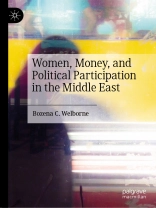This book examines women, money, and political participation in the Middle East and North Africa focusing on women’s capacity to engage local political systems. In particular, it considers whether and how this engagement is facilitated through specific types of financial flows from abroad. Arab countries are well-known rentier states, and so a prime destination for foreign aid, worker remittances, and oil-related investment. Alongside other factors these external monies have elicited dramatic shifts in gender-related social norms and expectations both from the state and the domestic population, affording certain women the opportunity to enter the political arena, while leaving others behind. The research presented here expands the discussion of women in rentier political economy and highlights their roles as participants and agents within regional templates for economic development.
Daftar Isi
Chapter 1: An Introduction: Gendered Rentierism in the Arab World.- Chapter 2: State Feminism and Gender Rentierism.- Chapter 3: Foreign Aid and Virtue Signaling .- Chapter 4: The Gender Paradox of Remittances.- Chapter 5: Independents, Women’s Work, and Oil Rents.- Chapter 6. Gender Rentierism—a Curse or an Opportunity for Women?
Tentang Penulis
Bozena C. Welborne is an Assistant Professor in the department of Government at Smith College. Her research explores the impact of financial globalization on institutional reform and social change in the Middle East and North Africa with a focus on gender. Welborne is also a principal author of the book, The Politics of the Headscarf in the United States, which showcases results from the largest academic survey of Muslim-American women inquiring into their Islamic practice and politicization.












